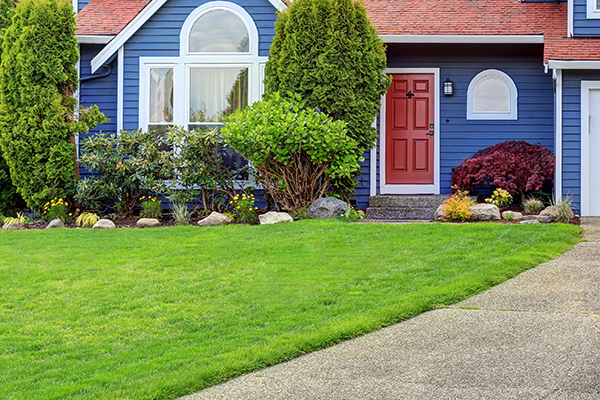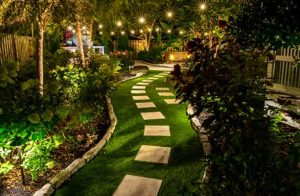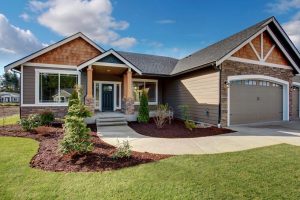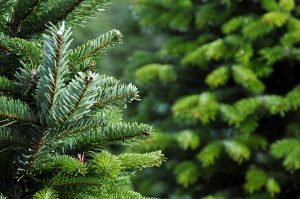
Some turfgrass species will always grow better under warmer conditions, while others thrive in cooler temperatures. Also, what may grow well on one property may only last one season elsewhere. And we cannot forget how elevation and terrain can impact your lawn’s growth.
What Type of Grasses Get Planted In West Tennessee?
Across our region, you will discover there are Cool Season and Warm Season Grasses. The season refers to the best time of year a particular grass type is planted or seeded.
Among those varieties of turfgrasses, you will discover some have more than one species of its type, for instance, Bluegrass. It has three kinds, Hybrid, Rough, and Kentucky, whereas St. Augustine grass only has one.
Here is our list of seasonal turfgrasses and their specific grass type grown in our area. Only two on our list do not have additional types listed.
Cool Season Grasses
- Bluegrass – Hybrid, Rough, Kentucky
- Ryegrass – Annual, Intermediate, Perennial
- Fescue – Chewings, Hard, Sheep, Tall, Strong Creeping Red, Slender Creeping Red
Warm Season Grasses
- Centipedegrass
- St. Augustine grass
- Bermudagrass – Hybrid, Common, Improved Common
- Zoysia – Hybrid, Manilagrass, Mascarenegrass, Korean Velvetgrass, Chinese, Japanese, or Korean Common Lawngrass
What Is The Best Time To Plant Grass In West Tennessee?
Your cool-season grasses have two planting times. They are Late Summer – Early Fall, and Late Winter – Early Spring. With every species of Fescue and Ryegrass, these are your planting times. Bluegrass types, on the other hand, are best planted in Late Summer – Early Fall.
With every variety of warm-season grass, your best planting times are Late Spring – Early Summer. Should you decide to lay sod from a warm-season turfgrass during the cool season, make sure the planting area is not frozen.
What Are The Pros And Cons Of West Tennessee Grasses?
Each turfgrass type must maintain a balance when planting or seeding, watering, and caring for it. Trying to use shortcuts or gimmicks to keep your lawn vibrant, most of the time harms the landscape, becoming costly to repair or replace.
Cool Season Grasses
PROS
- Bluegrass – It has dense growth, the ability to self-repair, survives cold temperatures, and recovers from being dormant.
- Ryegrass – Germinates very quickly, strong wear and tear tolerance, and maintains color during winter months.
- Fescue – Heat, drought, and shade-tolerant, withstands wear and tear, and has an extensive root system.
CONS
- Bluegrass – It has shallow roots, germinates slowly, and cannot survive in the shade.
- Ryegrass – Grows in thin, cannot survive extreme weather, limited capacity to self-repair.
- Fescue – Limited self-repair ability, susceptible to disease, suffers without water.
Warm Season Grasses
PROS
- Centipedegrass – Easy to maintain, withstands harsh climate conditions, adapts to different soils, tolerates low fertility soils.
- St. Augustine grass – Does better in moderate shade, tolerant to salt, has a dense turf for average foot traffic.
- Bermudagrass – Heat tolerant, resilient, and easy to grow
- Zoysia – Low maintenance, grows in different environments, tolerates exposure to sunlight, water, and temperature.
CONS
- Centipedegrass – prone to discoloration from iron chlorosis, does not tolerate salt, not able to handle heavy foot traffic, susceptible to Centipedegrass decline.
- St. Augustine grass – Unable to hold up under repeated foot traffic, turns brown in cooler temperatures, growth gets stunted in waterlogged soil.
- Bermudagrass – It is cold intolerant, does not do well in shade, aggressive, and invasive when not maintained.
- Zoysia – Doesn’t stay green year-round, the turf can remain brown until Spring, can take up to 3 years to reach the desired density.
Need help deciding what is the best type of grass for your West Tennessee property? We invite you to – Contact us here or call us at 731-571-2730.






